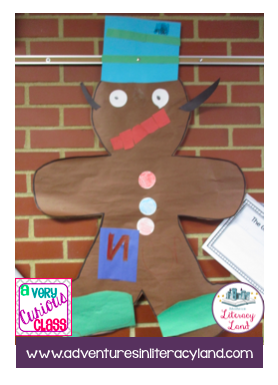
Oral Storytelling with Picture Walks

Using Fairy Tales to Enhance Comprehension Skills
When teaching a new comprehension skill, many times I use fairy tales since they are a familiar story to many children. We don't have to take the time to think about the plot of the story and can focus on that skill.

Student-Created Gingerbread Variations
I'm sure many of you have read multiple versions of The Gingerbread Man story. I decided to take it a step further this year and have my kids work in teams to create their own gingerbread story.

R-Controlled Vowels: Success Can Be Found on the Farm
Historically, students in my school have shown several weaknesses on the PALS Spelling test: ng/nk, r-controlled vowels, vce, and vowel pairs. Each of these spelling patterns have "rules," but they aren't really rules. Rules shouldn't be broken and, as you know, spelling rules are broken all the time, but it can give a student a place to start. BUT, R-controlled vowels are especially hard because there aren't really any rules.
Subscribe to:
Posts (Atom)








